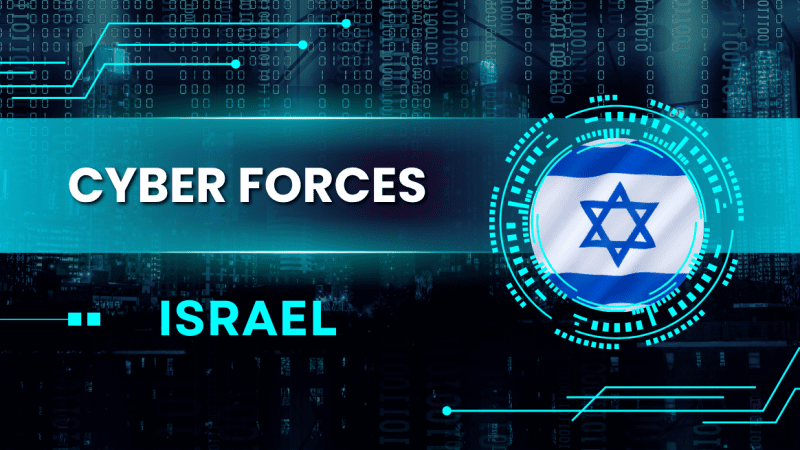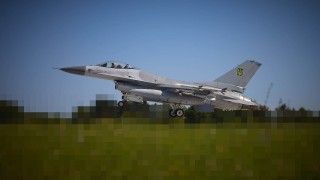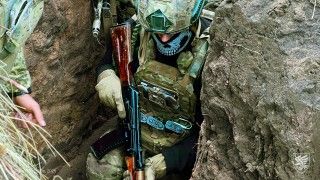- WIADOMOŚCI
Cyber Forces: Israel
Israel is not only developing its air forces, which demonstrated their capabilities in the attack on Iran, but is also advancing in the cyber domain. Having been a target of cyberattacks for years, digital rivalry has become one of its top priorities – something Israeli military officials frequently emphasise. While there have been mistakes along the way, Tel Aviv now possesses some of the most developed cyber forces in the world.

Today, Israel is undoubtedly one of the most advanced countries globally in the field of cybersecurity and cyber military capabilities. As one of the first nations to strategically recognise cyberspace as a new dimension of conflict, it has built a unique, synergistic model of cooperation between the state, military, private sector, and academia. With limited strategic depth and constant asymmetric threats, cyberspace has become a tool of strategic compensation for Israel, enabling power projection below the threshold of war.
For Israel – a country surrounded by hostile state and non-state actors such as Iran, Hamas, and Hezbollah – cyberspace remains a real battlefield. Since the full-scale escalation of conflict with Hamas in October 2023, the intensity of cyberattacks on Israel has tripled, and the number of reported incidents has increased by 24%. Israel has also ranked among the most targeted countries worldwide.
In 2023 alone, over 1,480 DDoS attacks were repelled, mainly from groups linked to the pro-Palestinian movement. The ongoing OpIsrael campaign, which began in 2013 and aims to „erase Israel from the internet,” engages thousands of hackers annually. While Israeli services usually manage to limit the effects of these attacks, the sheer scale of hostile activity requires a constant and dynamic cyber response.
History and evolution of cyber units
At the heart of Israel’s cyber strength is Unit 8200 – an elite unit of the military intelligence directorate Aman, often compared to the NSA and GCHQ. It has been credited with co-developing the Stuxnet virus, which destroyed Iranian nuclear centrifuges in Natanz, with advanced cyber espionage campaigns under Operation Duqu 2.0, and with disrupting the Shahid Rajaee port infrastructure in 2020.
Unit 8200 is also credited with foiling an ISIS plot to bomb a civilian passenger plane in 2018, as well as advanced operations targeting Hezbollah’s communication systems in Lebanon. While many of these operations remain officially unconfirmed, their scale and effectiveness have contributed to the global reputation of Israeli cyber intelligence as among the most capable in the world.
Since 2011, Unit 8200 has had an internal team responsible for offensive cyber operations, operating in close synchronisation with technological intelligence. Its operations, both offensive and defensive, are directly tied to Israel’s national security policy.
In areas such as the Gaza Strip and the West Bank, the unit also gathers data on the Palestinian population and supports the military through target analysis and identification using AI. A key to its effectiveness is its start-up-style work culture: small, autonomous teams, rapid prototyping, and (crucially) decision-making agility. Recruitment begins at the high school level, with the most gifted students in maths and computer science streams channelled into special training programmes.
Current structure and operational capabilities
Israel’s current cyber structure rests on three pillars: Unit 8200, the C4I Directorate (Cyber Defense Division), and the civilian Israel National Cyber Directorate (INCD). In addition, Mossad and Shin Bet – responsible respectively for foreign operations and domestic counterintelligence – also carry out cyber activities.
Within the IDF, there is also a Cyber Innovation Unit focused on creating new tools and solutions in collaboration with the private sector. This entire system is supported by a national technological ecosystem comprising over 80 cyber-surveillance-related companies, mostly located in Tel Aviv and Be’er Sheva. The latter is home to the so-called „digital capital of Israel” – CyberSpark – where the military, universities, and private companies share space, knowledge, and innovation.
The civilian component of cyber defence is represented by the INCD, established in 2018 as the main body responsible for critical infrastructure security, incident response coordination, and public education. The latest INCD strategy for 2025–2028 includes the creation of a „Cyber Dome” – a national AI-driven cyber defence system designed to address growing threats from Iran and Hamas. In 2024, the number of alerts doubled, and damages from cyberattacks were estimated at over 3 billion dollars.
Development of cyber structures
Israel is developing its cyber forces using a hybrid model that combines the capabilities of military service, the private sector, and technological reserves. Former members of Unit 8200 have founded companies such as Check Point, CyberArk, Claroty, CyCognito, and Palo Alto Networks, which both support national security and serve as instruments of Israel’s cyber soft power abroad.
Surveillance technologies and AI tools are sold to countries such as the USA, India, and those in the Gulf. In this way, Israel’s cyber forces have become not only a defensive instrument but also a diplomatic and economic lever of influence.
Criticism
Israel also faces criticism – particularly regarding the activities of the NSO Group and its Pegasus system, used for spying on journalists, activists, and opposition figures worldwide.
Criticism of Israel’s cyber structures intensified after October 2023, when intelligence services were accused of ignoring warning signs ahead of the Hamas attack. The commander of Unit 8200 resigned, citing a failure to fulfil the core mission of protecting the state. Nonetheless, Israel’s cyber forces model remains one of the most effective and highly integrated systems in the world.
Strategic advantage
In daily operations, Israeli cyber units use artificial intelligence to analyse communications, mine data sets, identify targets, and support tactical decision-making. While AI increases efficiency and operational tempo, it also brings risks related to deregulated decision processes and potential errors in the context of armed conflict.
Israel demonstrates that in the 21st century, technological superiority can serve as a deterrent, enable power projection in ways invisible (and inaccessible) to many conventional armies, and strengthen a country not only militarily but also politically and economically.
Cyber forces in Israel are not a standalone component – it must be stated clearly that they form an integrated system, where continuous development, national security, and innovation focused on results are inseparably connected. If one is to draw inspiration from Israel’s approach, it should be from its cyber force development model.
Authors: Dr. Aleksander Olech, Dorota Kwaśniewska
#cyberforces24















